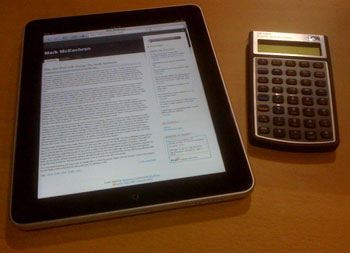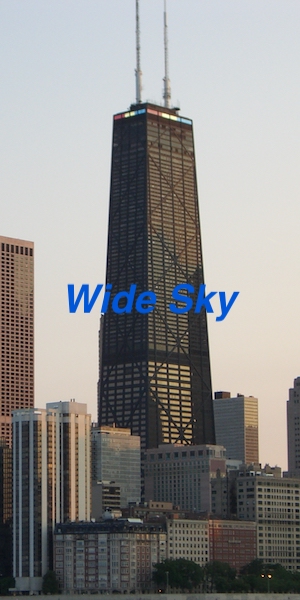 The launch of the iPad heralded the end of the netbook, the Kindle and the nook. None of these things will come to pass due to the iPad, however. The netbook will survive because people like a keyboard and people like their windows applications. The Kindle and the nook may survive as well, they will be single purposes devices like the calculator that still sits on so many office desks. No, the iPad won’t kill these devices, nor will it destroy the physical book. But it might make a wide array of books unavailable in print form. The iPad can’t be blamed for this alone, but consider it the last horseman of the books apocalypse. The Kindle, the nook and even the Web itself were all whispering about the death of print media long before thoughts of the iPad were dancing in the minds of Apple fan boys.
The launch of the iPad heralded the end of the netbook, the Kindle and the nook. None of these things will come to pass due to the iPad, however. The netbook will survive because people like a keyboard and people like their windows applications. The Kindle and the nook may survive as well, they will be single purposes devices like the calculator that still sits on so many office desks. No, the iPad won’t kill these devices, nor will it destroy the physical book. But it might make a wide array of books unavailable in print form. The iPad can’t be blamed for this alone, but consider it the last horseman of the books apocalypse. The Kindle, the nook and even the Web itself were all whispering about the death of print media long before thoughts of the iPad were dancing in the minds of Apple fan boys.
Let’s not forget the stepping stones to bring book buying online. Certainly Amazon and everyone Amazon crushed will have their place in the history “books”. Their online marketplaces showed everyone how to sell books on the web with reviews, technical details and even book previews that whet the appetites of rabid readers. And while Amazon sits in an interesting position having its own e-reader and a well established store, it couldn’t quite commit, or get the market to commit, to an entire catalog of all-digital books with no paper copies shipping. The Kindle, while great for novels, wasn’t a device for all types of books and without that versatility it can’t eliminate the need to publish books on paper and send them through the market to the consumer.
The latest iDevice, and the muscle of Apple’s store will do what they did with music. They will take an item traditionally in meat-space and drag it, finally, onto the Internet and make it so easy and instantly gratifying that the average person cannot resist. The key is that the digital copy is cheap on every level. It’s cheap to create new copies, it’s cheap to house them, it’s cheap to deliver them, it’s cheap for the buyer to store them and move them. With all this cheapness the margins in the book business explode and the act of publishing is just a few clicks away for any author. This is where the last horseman comes in and actually heralds the death of the publishing branch and the meat-space book store. This won’t surprise anyone in the industry, really.
There are two clear winners in the book space: Amazon and Apple. Barnes & Noble is a distant third and it’s really starting to look a lot like Blockbuster Video in the face of Netflix. B&N is getting desperate. Their store personnel are pushing the nook hard, but they seem to be relying on customer ignorance of the other devices in the market. The nook has some fun features including a partial color display, but it’s just a bit too late to market as a monochrome reader and the company is not well positioned to offer a high-end electronic device of any kind to its customers. B&N will probably become a marginal player in the book business, like a store still selling vinyl and CDs or renting out the latest DVD movies. They may survive, for awhile, providing specialty services or used books like The Shop Around The Corner, but eventually they will succumb to their impending demise.
Printing books will appear very costly when compared to publishing electronically. The big publishing houses will de-tool most of their physical printing business arm and pour their money into the superstars of books. They will look almost exactly like the recording industry and may as well be grouped together as media promoters. This will eventually lead the publishing houses to the same problem that the record labels are having: relevance. Authors no longer need a traditional publisher to get their books published; they can easily sign up at Amazon and get their book on the Kindle. Widely readable authors will still benefit from the promotion that comes with being affiliated with a big-fish book publisher, but the houses will lose a lot of control over their ecosystem.
The new book business will have a lot of smaller fish in a few big ponds. Right now the Amazon pond is the largest, but the Apple creek is feeding its own pond and it’s starting to rain.




